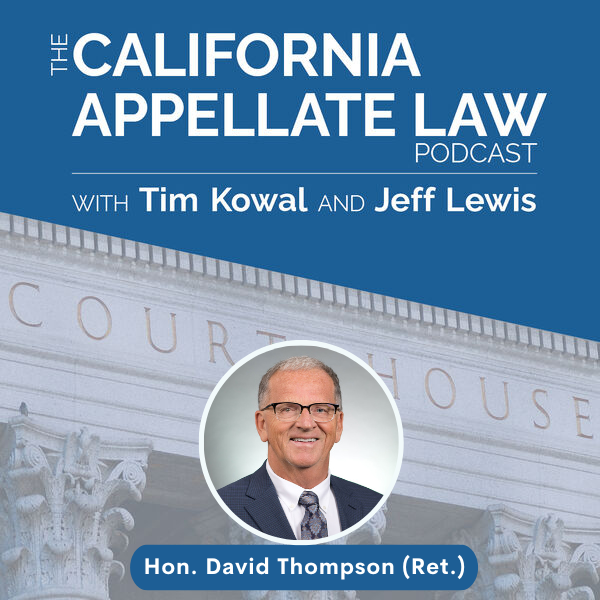
Before Justice David Thompson left the bench in 2021 to become a private neutral, his colleague Justice Bedsworth called him “hard-headed.” And compassionate. But hard-headed? Justice Thompsons explains what Justice Bedsworth probably meant by that: “I say what I mean,” and tends to be direct—particularly at oral argument.
Justice Thompson discusses his more stringent judicial philosophy when it comes to publishing opinions, and granting writ relief. But he does favor tentative opinions and the use of focus letters to make for more effective oral argument.
Justice Thompson also provides some hard-nosed advice to lawyers:
Justice David A. Thompson (Ret.)’s biography and LinkedIn profile.
Appellate Specialist Jeff Lewis' biography, LinkedIn profile, and Twitter feed.
Appellate Specialist Tim Kowal's biography, LinkedIn profile, Twitter feed, and YouTube page.
Sign up for Tim Kowal’s Weekly Legal Update, or view his blog of recent cases.
Use this link to get a 25% lifetime discount on Casetext.